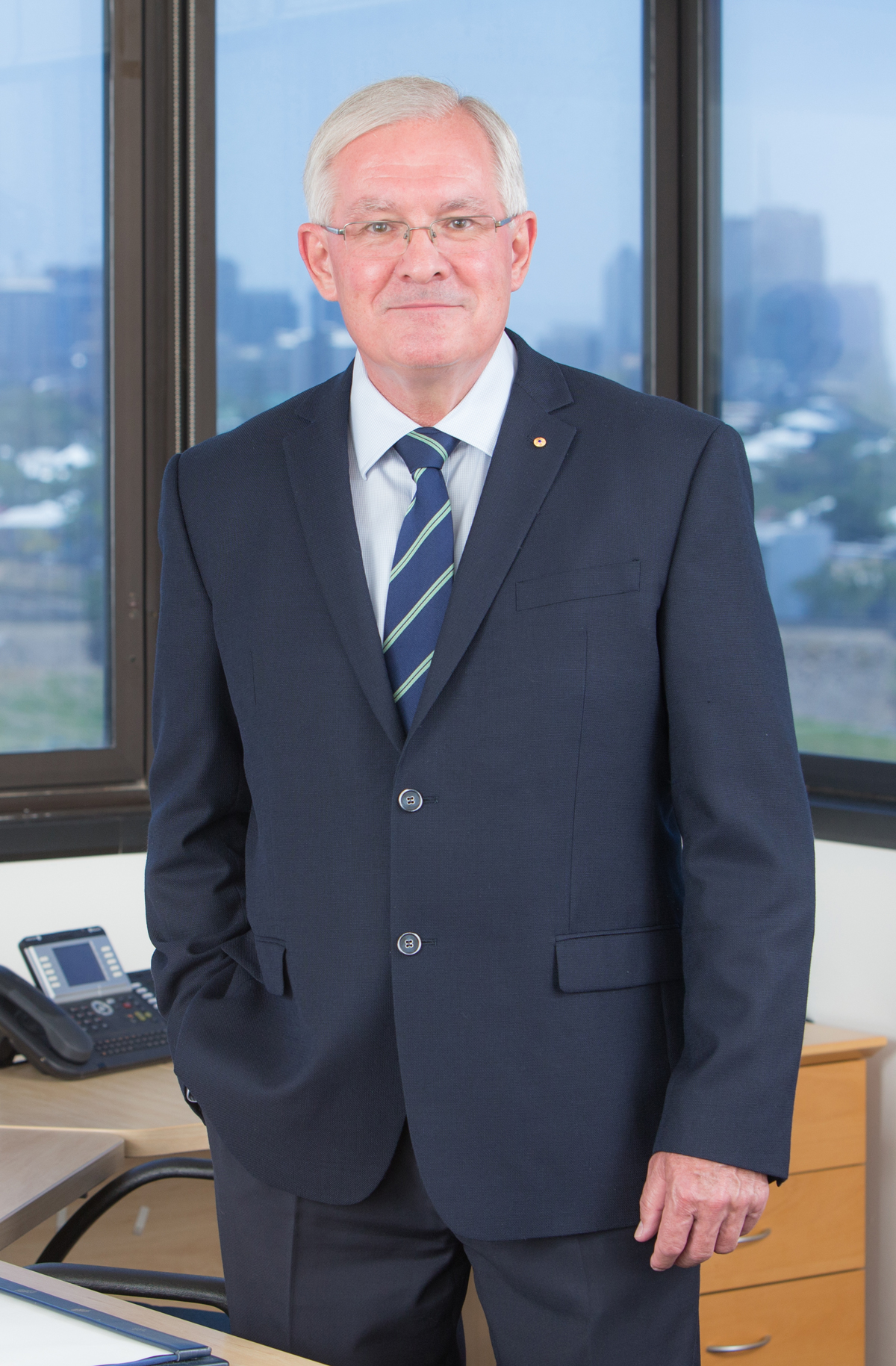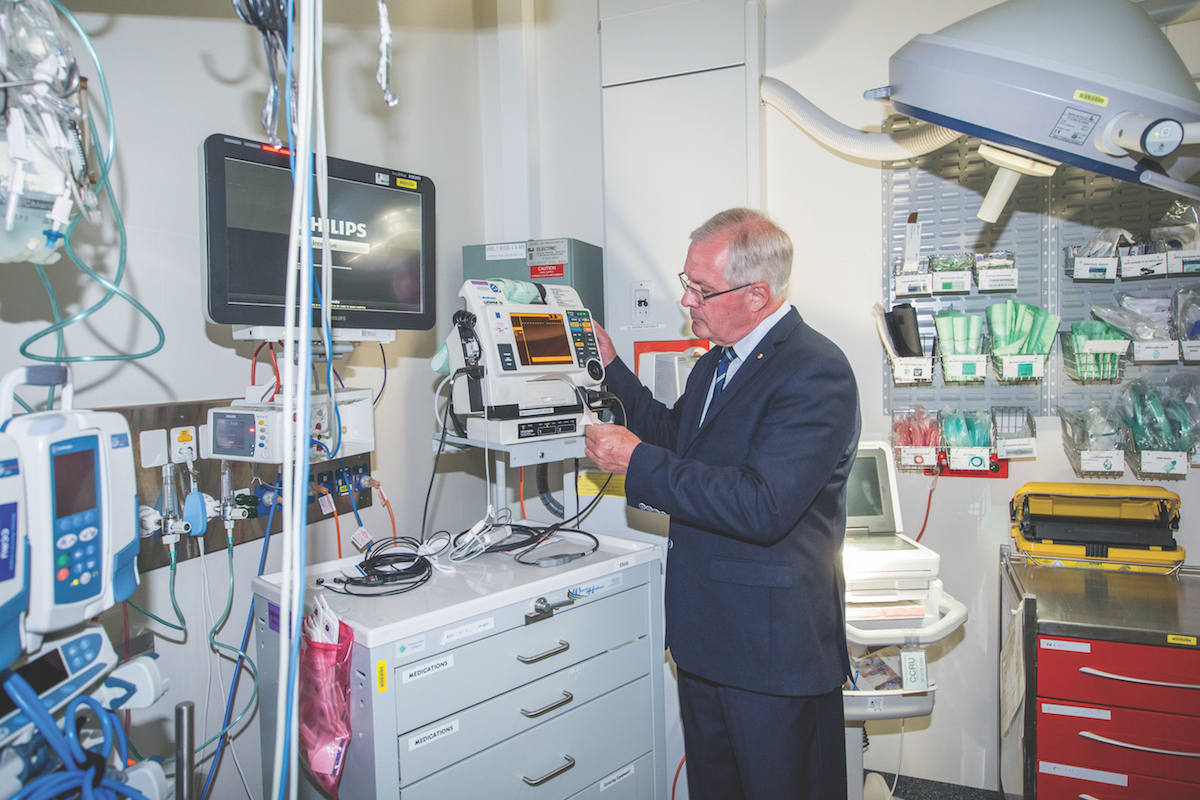Dr Richard Ashby
A computer deciding your treatment and a health professional being alerted when you haven’t taken your medication are two healthcare advances that Dr Richard Ashby is welcoming.
In a medical career spanning four decades, from intern to chief executive, it would be safe to assume Dr Richard Ashby has seen it all. But apparently he hasn’t. While Brisbane’s Metro South Health chief executive admits he’s witnessed some of the most astonishing advances ever discovered in medicine, he promises there’s much more to come. And one of his hospitals, ironically where he completed his internship all those years ago, is leading the way.
Princess Alexandra is Australia’s first public digital hospital, one of only a dozen throughout the world, revolutionising healthcare to make it safer, more accessible and more accountable. Since the digital transformation in November 2015, nearly 400 health service executives and clinicians from around the world have visited to learn from the project, which was awarded the 2016 Queensland Premier’s Award for Excellence in Innovation.

The digital world is the big enabler of the future of healthcare; it’s not something to be scared of. – Dr Richard Ashby
Medical man
As a former director of emergency at Royal Brisbane before becoming executive director at the Royal Brisbane and Women’s Hospital (RBWH) and a district manager for both the RBWH and Princess Alexandra, Richard is candid about being at the helm. "Being an executive is harder than being a doctor," he admits, "but it’s a very exciting time to be in a health leadership position in Australia. Healthcare is the most complex of industries, but our system can be rolled out in cookie-cutter fashion to other hospitals around Australia and internationally. With our partnerships with research institutes and universities growing, more problems will be solved, more health issues will be identified, and human errors will be overcome."
A leading tertiary hospital, Princess Alexandra shares South Metro’s 3,500-square-kilometre patch with Logan, Redland and QEII Jubilee hospitals, along with mental, oral and community health services — all of them responsible for the care of 1.2 million Queenslanders, a quarter of Queensland’s population.
It’s a responsibility Richard doesn’t take lightly, and there’s no mistaking the medical man behind the administrator. He has that quiet, reassuring, confident voice of the GP we all yearn to have, and healthcare is first and foremost in his mind. Granted, he now has considerably more patients on his books, but his motivation remains unchanged. He just wants to make people better, and understands technology is the way forward.
Tech-savvy
The enormous challenge of bringing 6,000 staff at Princess Alexandra up to speed with the digital process in just 10 weeks, and integrating nearly 3,000 devices, was met head on by Richard and his team. "We trained 250 people a day over extended shifts, seven days a week," he remembers. "Big tertiary hospitals are very tech-savvy, and the leadership from the senior staff, on top of an already very strong culture and morale, led to our overall success.

Hospitals can be electronic, but digital is entirely different — it’s integrated. Active and passive decision support is built into the system, so if somebody prescribes you a drug you’re allergic to, the system will trigger an alert; or enter the condition of a patient and the computer orders all the treatments and tests required.
"Then there’s precision medicine, a mega health trend, which individualises treatment based on the patient’s genetics, biology, lifestyle and environment. We can predict the response to a drug through genetic testing, ideal for expensive drugs that can cost up to $100,000 a course. We don’t give it to people when we know it won’t work, but ensure we give it to people where it will work."
The advances in technology are endless — some might say alarming — with treatments on the horizon defying comprehension, unless, of course, you’re Dr Richard Ashby. "Digital medication is one very exciting area," he enthuses, "and will be particularly effective for people with mental health issues or epilepsy. There’s a new patent pending for tablets that have a device attached to them activated by stomach acid. It sends a communication to your iWatch or phone, which in turn sends a message to your case manager that you’ve taken your medication. If you haven’t, your case manager will send you a text reminding you. If you still don’t take it, you might have someone arriving at your house to talk to you about it and prevent you from becoming sick and ending up in Emergency. The digital world is the big enabler of the future of healthcare; it’s not something to be scared of."